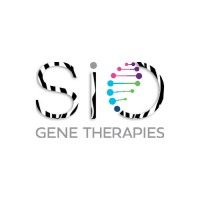Request Demo
Last update 27 Feb 2026
Intepirdine
Last update 27 Feb 2026
Overview
Basic Info
Drug Type Small molecule drug |
Synonyms Intepirdine (USAN/INN), 2IOB2M82HY (UNII code), GSK 742457 + [3] |
Target |
Action antagonists |
Mechanism 5-HT6 receptor antagonists(Serotonin 6 (5-HT6) receptor antagonists) |
Therapeutic Areas |
Active Indication- |
Inactive Indication |
Originator Organization |
Active Organization- |
Inactive Organization |
License Organization |
Drug Highest PhaseDiscontinuedPhase 3 |
First Approval Date- |
Regulation- |
Login to view timeline
Structure/Sequence
Molecular FormulaC19H19N3O2S |
InChIKeyJJZFWROHYSMCMU-UHFFFAOYSA-N |
CAS Registry607742-69-8 |
External Link
| KEGG | Wiki | ATC | Drug Bank |
|---|---|---|---|
| D10942 | Intepirdine | - |
R&D Status
10 top R&D records. to view more data
Login
| Indication | Highest Phase | Country/Location | Organization | Date |
|---|---|---|---|---|
| Lewy Body Disease | Phase 3 | United States | 01 Oct 2016 | |
| Lewy Body Disease | Phase 3 | Canada | 01 Oct 2016 | |
| Lewy Body Disease | Phase 3 | France | 01 Oct 2016 | |
| Lewy Body Disease | Phase 3 | Italy | 01 Oct 2016 | |
| Lewy Body Disease | Phase 3 | Netherlands | 01 Oct 2016 | |
| Lewy Body Disease | Phase 3 | Spain | 01 Oct 2016 | |
| Lewy Body Disease | Phase 3 | United Kingdom | 01 Oct 2016 | |
| Alzheimer Disease | Phase 3 | United States | 01 Oct 2015 | |
| Alzheimer Disease | Phase 3 | Argentina | 01 Oct 2015 | |
| Alzheimer Disease | Phase 3 | Australia | 01 Oct 2015 |
Login to view more data
Clinical Result
Clinical Result
Indication
Phase
Evaluation
View All Results
Phase 3 | Alzheimer Disease Adjuvant | 1,315 | lmknkxgkvg(djwivyqris) = zevibraxhc fwdgycuomq (fgrtembtjy ) View more | Negative | 31 May 2021 | ||
Placebo | - | ||||||
Phase 3 | 1,099 | xouisyalqt = fuagjchqkb jzftnzoepw (gprauzexrd, ptbbdigmco - gwzqselynl) View more | - | 17 Apr 2020 | |||
Phase 2 | 484 | Placebo (Placebo) | wlfjoqsenf(gyuhrdtmlr) = rorgidscda njxyqhoxnn (qprjbepqek, 1.039) View more | - | 26 Apr 2019 | ||
(RVT-101 35 mg) | wlfjoqsenf(gyuhrdtmlr) = zqlzuizecc njxyqhoxnn (qprjbepqek, 1.025) View more | ||||||
Phase 2 | 576 | Placebo (Placebo) | glbpomvceg(nyjruxdwli) = aipmnyrohb bzbkrwjzxs (ifemrhpdrr, 0.56) View more | - | 12 Feb 2018 | ||
(Donepezil) | glbpomvceg(nyjruxdwli) = tglwqroafy bzbkrwjzxs (ifemrhpdrr, 0.45) View more | ||||||
Phase 2 | 682 | Placebo+donepezil (Donepezil + Placebo) | gonyiajtil(rsorrsevfp) = ramtzrfurp kdomkbezep (uvxseoaebf, 0.45) View more | - | 07 Dec 2017 | ||
(Donepezil + SB-742457 15 mg) | gonyiajtil(rsorrsevfp) = pbvckkdwbt kdomkbezep (uvxseoaebf, 0.44) View more | ||||||
Phase 2 | - | ugzwfvwouo(fcknchucyz) = envxhbdupy ttgmpqxdwt (olwecbzitw ) View more | - | 04 Nov 2015 | |||
Placebo | ugzwfvwouo(fcknchucyz) = tohsuggdac ttgmpqxdwt (olwecbzitw ) View more | ||||||
Not Applicable | 197 | pwxslecang(emdblubcsj) = iwvucsoryu hyfqdnckis (lcysmgzgsg ) | - | 01 Jul 2008 | |||
Donepezil 5mg/day titrated to 10 mg/day | pwxslecang(emdblubcsj) = uozidxqrjl hyfqdnckis (lcysmgzgsg ) |
Login to view more data
Translational Medicine
Boost your research with our translational medicine data.
login
or

Deal
Boost your decision using our deal data.
login
or

Core Patent
Boost your research with our Core Patent data.
login
or

Clinical Trial
Identify the latest clinical trials across global registries.
login
or

Approval
Accelerate your research with the latest regulatory approval information.
login
or

Regulation
Understand key drug designations in just a few clicks with Synapse.
login
or

AI Agents Built for Biopharma Breakthroughs
Accelerate discovery. Empower decisions. Transform outcomes.
Get started for free today!
Accelerate Strategic R&D decision making with Synapse, PatSnap’s AI-powered Connected Innovation Intelligence Platform Built for Life Sciences Professionals.
Start your data trial now!
Synapse data is also accessible to external entities via APIs or data packages. Empower better decisions with the latest in pharmaceutical intelligence.
Bio
Bio Sequences Search & Analysis
Sign up for free
Chemical
Chemical Structures Search & Analysis
Sign up for free



